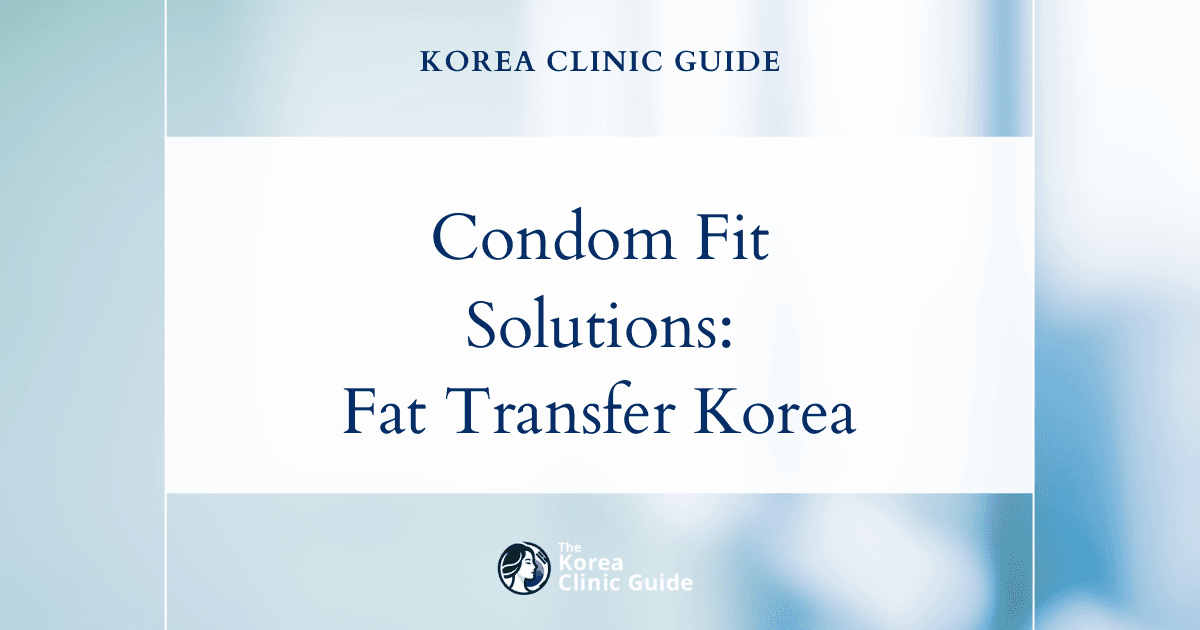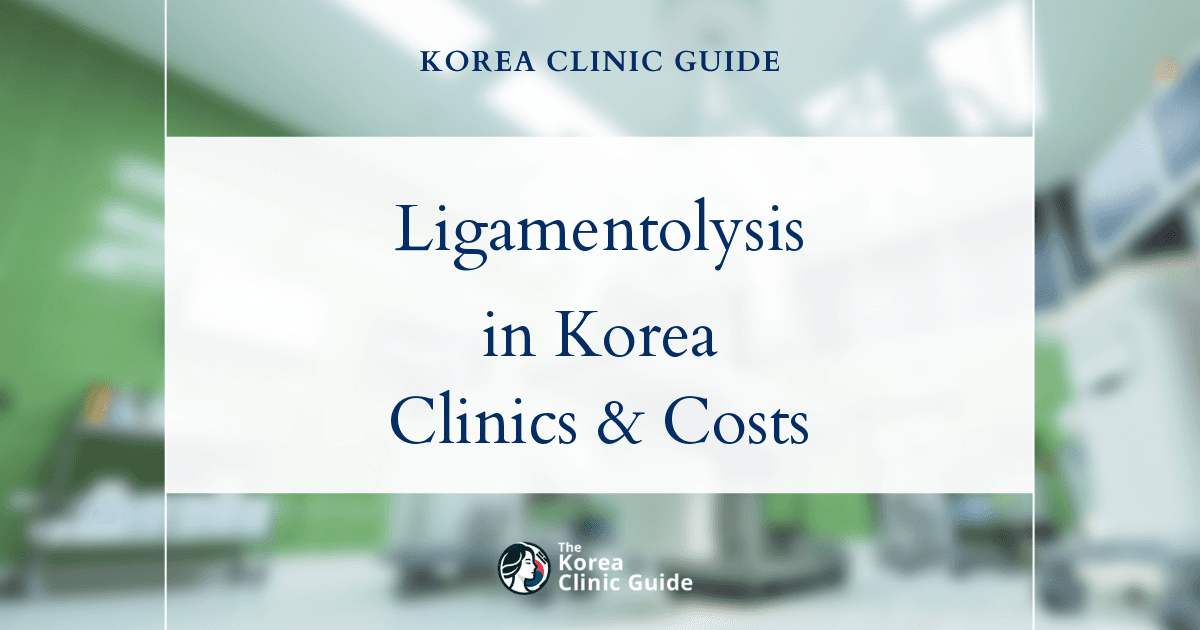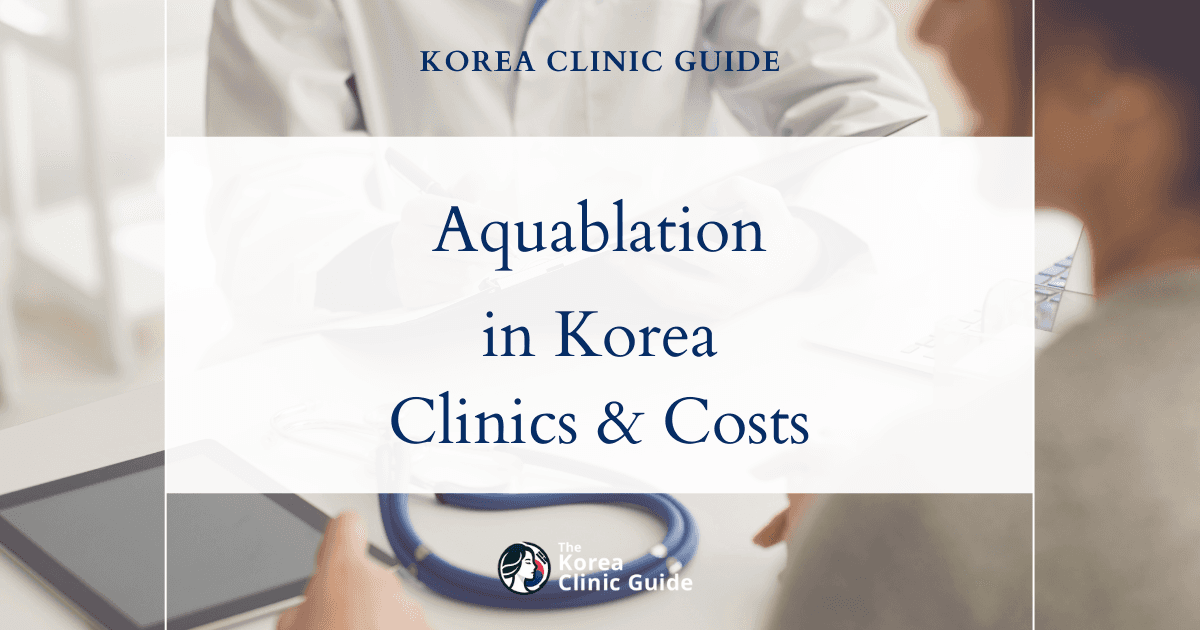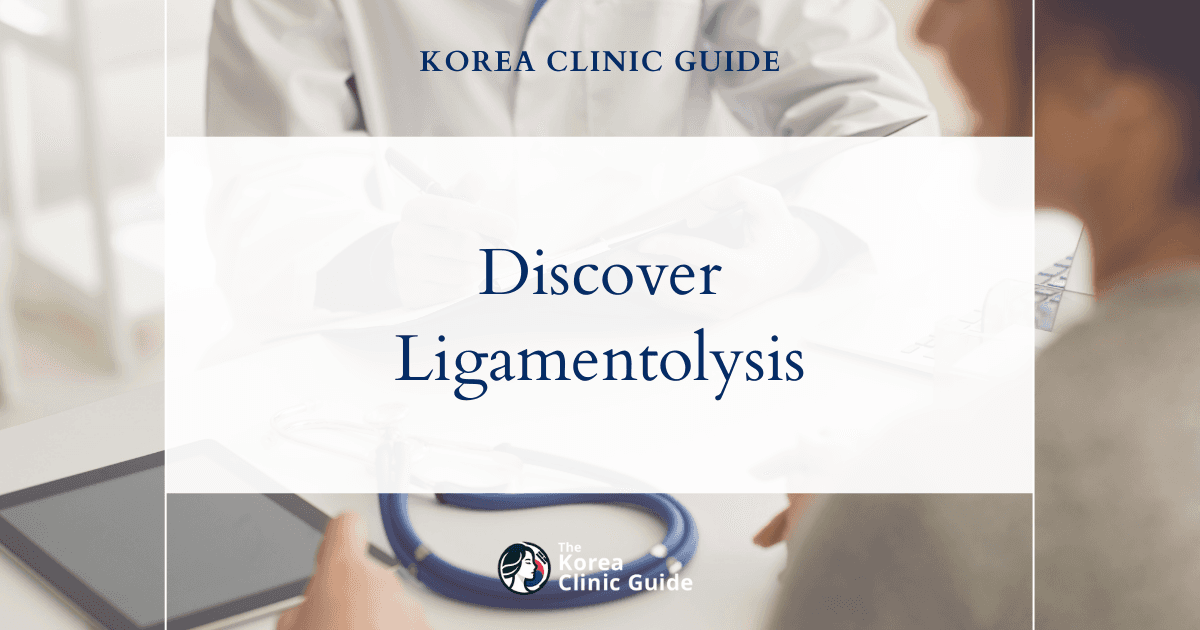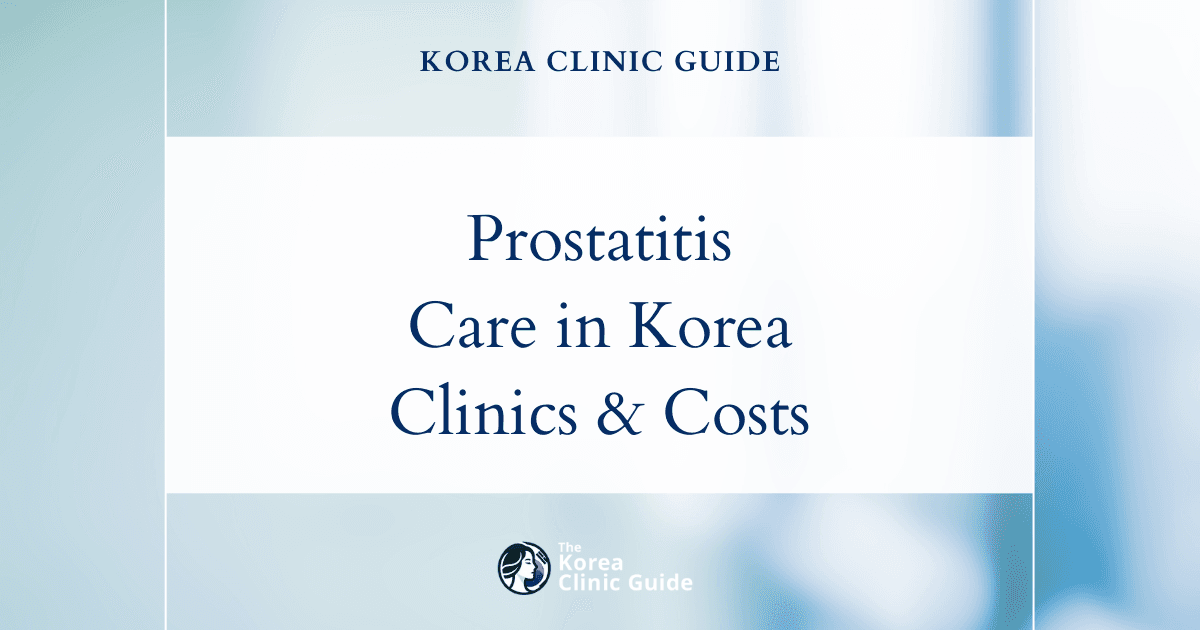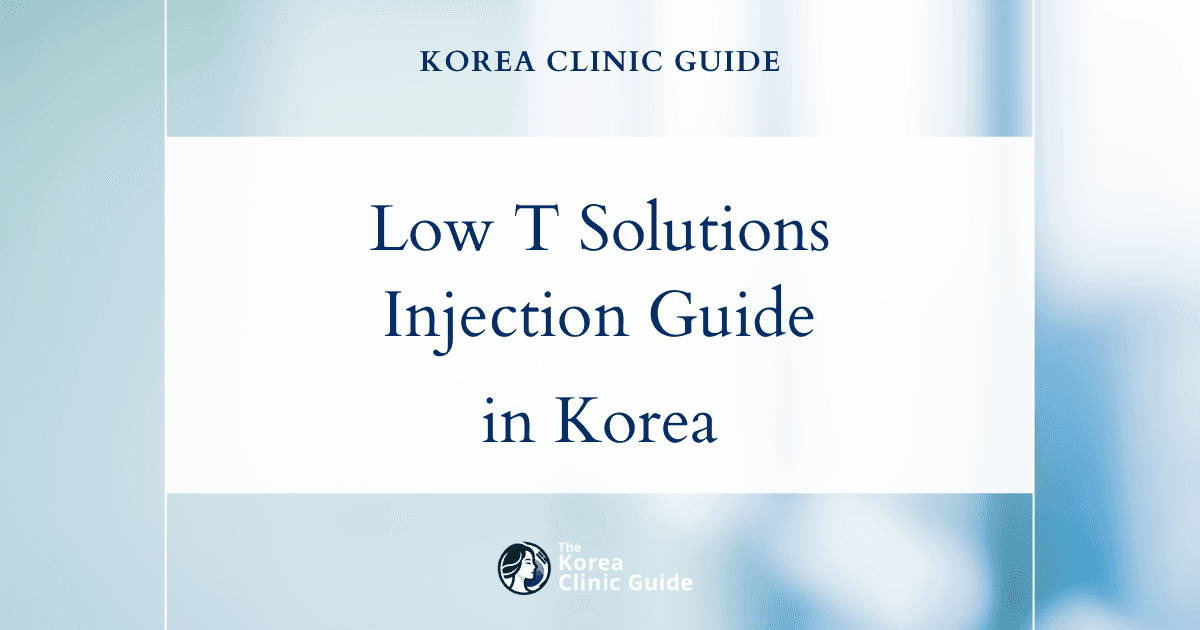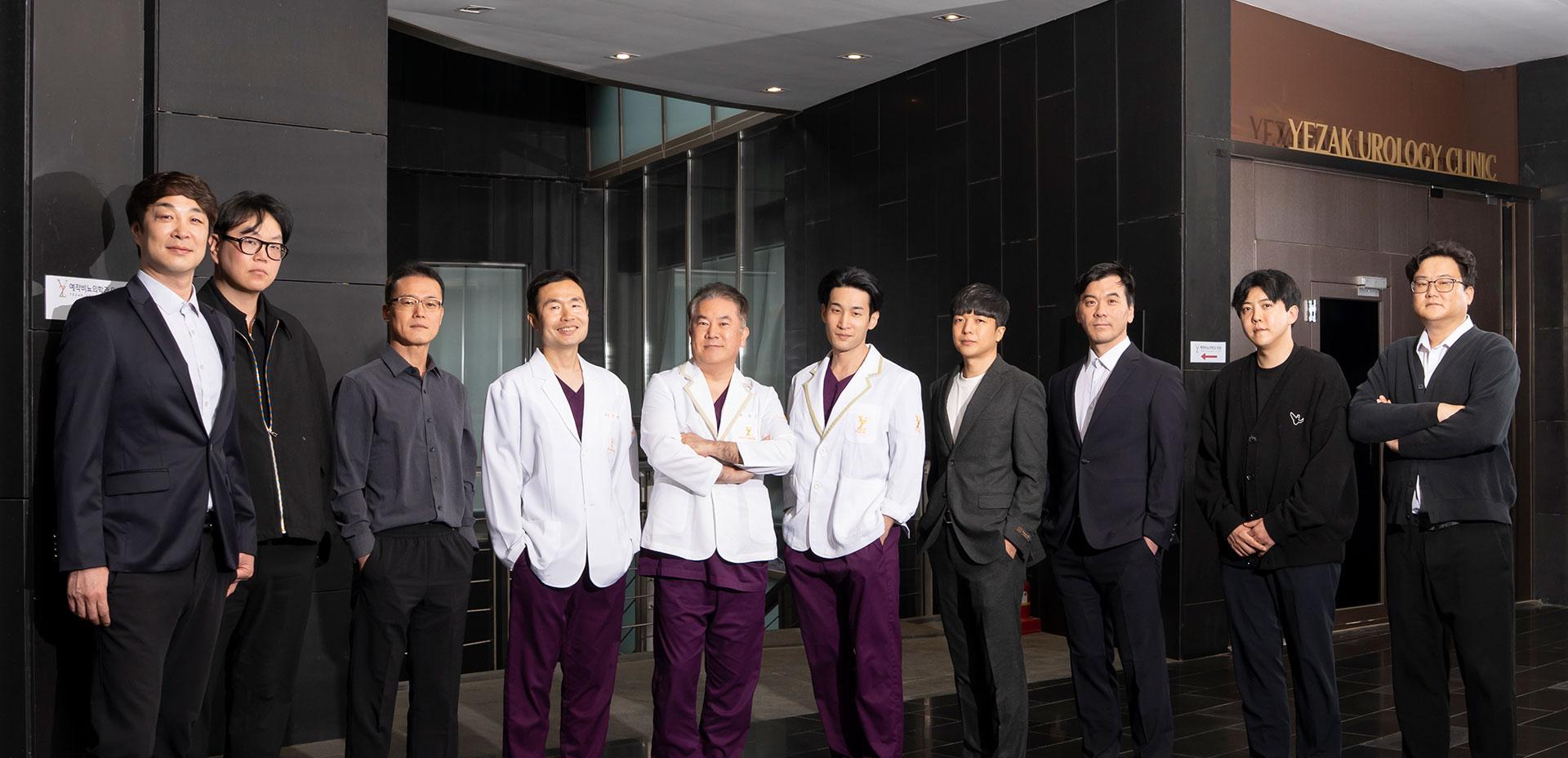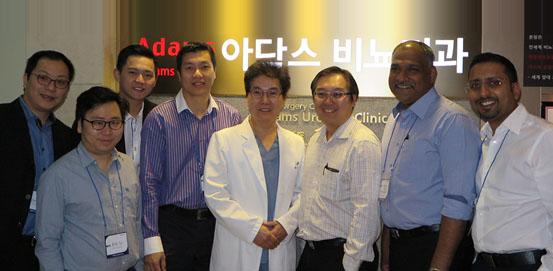Medical Tourism Blog
Vasectomy in Korea | Best Clinics, Costs, Procedure Types & More
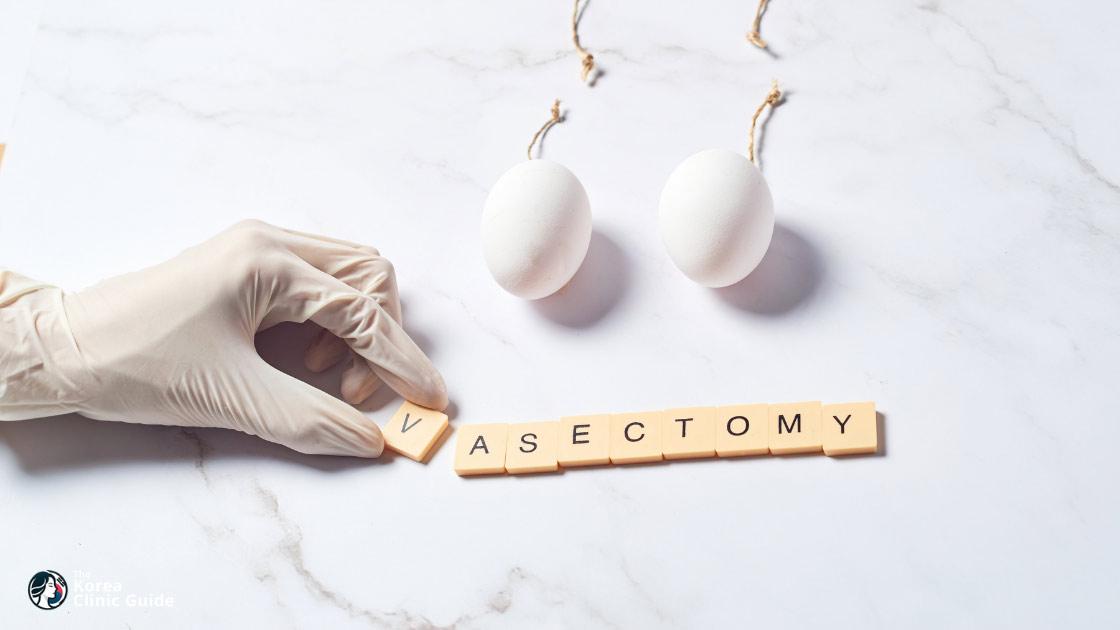
Table of contents
- What Is Vasectomy?
- Best Clinics in Korea for Vasectomy
- Getting Vasectomy in Korea
- Cost of Vasectomy in Korea
- Alternatives to Vasectomy
- Conclusion
Considering treatment in Korea? Everything you need to know e.g. — how to avoid scams, visas, interpreters, recovery tips — in our Medical Tourism Master Guide. Plan with confidence in minutes, not weeks!
Are you considering a long-term solution for preventing unwanted pregnancies? In South Korea, vasectomy is gaining popularity among men as a dependable and permanent form of contraception. This article explores the details of vasectomy, providing a comprehensive look at the procedure, ideal candidates, and insights into accessing top clinics in Korea.
What Is Vasectomy?
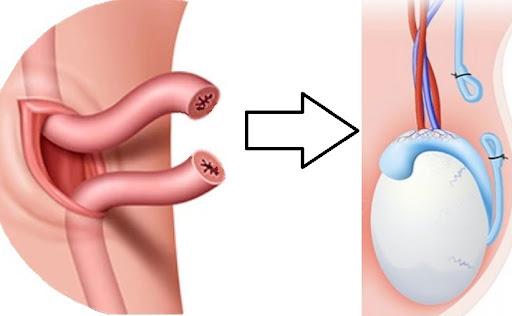
A vasectomy is a minor surgical procedure that serves as a permanent method of male contraception. It involves the cutting, sealing, or otherwise interrupting the vas deferens, the tubes that carry sperm from the testicles to the urethra. By preventing the passage of sperm, a vasectomy ensures that sperm are not included in the ejaculate, thus eliminating the possibility of fertilization and conception during intercourse.
The procedure is typically performed under local anesthesia, though sedation options may be available depending on the patient's comfort and the surgeon's preferences. In the most common method, a small incision or puncture is made in the scrotum, through which the vas deferens is accessed. The vas deferens is then cut, and the ends are sealed by tying, suturing, or cauterizing. Some techniques may use clips to close the ends instead. The incision is usually small enough that stitches are not required and it heals quickly.
A vasectomy is generally completed in less than 30 minutes, and patients are usually able to return home the same day. Discomfort is typically minimal and can be managed with over-the-counter pain relievers and ice packs. Full recovery occurs within a week, although it's advisable to avoid strenuous activities and sexual intercourse for at least a few days post-operation.
One key aspect to note is that a vasectomy does not produce immediate sterility. Sperm may still be present in the semen for several weeks following the procedure. Patients are advised to use alternative contraceptive methods until a follow-up test confirms that the ejaculate is free of sperm. This test is usually conducted a few months after the procedure and after a specific number of ejaculations, to ensure all remaining sperm have been cleared out.
Importantly, a vasectomy does not affect testosterone production, sexual drive, or the ability to achieve an erection and orgasm. It solely intercepts the sperm transportation route, thereby preventing sperm from mixing with the ejaculate.
While considered a permanent solution, vasectomy reversals are possible but not always successful. Therefore, it should be approached with the understanding that it is intended as an irreversible decision.
Who is Vasectomy for?
- Men certain they do not want more children: Vasectomy is ideal for men who are confident that they do not wish to father any more children. It is considered a permanent form of birth control, although vasectomy reversal exists, it is not always successful.
- Men looking for a highly effective contraceptive method: Vasectomy is over 99.99% effective in preventing pregnancies, making it a very reliable option for those seeking long-term contraception.
- Men seeking a simpler and less invasive procedure compared to female sterilization: Compared to tubal ligation in women, vasectomy is simpler, has fewer complications, is more effective, and is less expensive.
- Men who desire a one-time solution for birth control: Vasectomy is a one-time procedure that provides permanent contraception, eliminating the need for other birth control methods.
- Men who want to make sex more spontaneous and enjoyable: Many men find that sex becomes more spontaneous and enjoyable after a vasectomy because they no longer need to worry about pregnancy or interrupt sexual activity for contraception.
- Men who want a safe and convenient birth control option: Vasectomy is considered safe with minimal long-term health risks and allows for a relatively quick recovery, typically a week or less.
- Men in stable relationships discussing long-term family planning: Those in serious relationships or marriages who have decided against having more children should discuss the procedure with their partner to ensure mutual agreement on this form of permanent contraception.
Best Clinics in Korea for Vasectomy
Listed below are the best clinics in Korea for vasectomy:
| Clinic Name | Key Features | Special Techniques |
|---|---|---|
| Yezak Urology Website | Yezak Urology in Apgujeong is a dedicated men’s health center offering specialized surgical and non-surgical care delivered by a multi-specialist team with advanced safety systems. As a comprehensive clinic covering male enhancement, prostate care, erectile dysfunction, and general male health, Yezak provides coordinated expertise for men seeking reliable, evidence-based solutions. | No-scalpel vasectomy under local anesthesia to minimize invasiveness and downtime. The clinic’s protocol includes follow-up semen analysis to confirm success, aligning the procedure with Yezak’s emphasis on precision, safety, and efficient recovery within a full-spectrum men’s health setting. |
| Stantop Urology & Andrology Website | StanTop Urology & Andrology Clinic is a specialized medical institution dedicated to improving the quality of life for men and women in Korea and worldwide through advanced urological and andrological treatments. Recognized by KBS and trusted with over 100,000 patient consultations and 40,000 surgeries, the clinic is designed for comfort and privacy with separate consultation and treatment rooms for men and women. | Vasectomy—a permanent form of male contraception involving the cutting or sealing of the vas deferens—alongside comprehensive care such as STD check-ups, circumcision, and vaseline removal. With VIP options for personalized care and a broad spectrum of expertise that includes erectile dysfunction therapies and prostate evaluations, the clinic offers a discreet, patient-centered setting for men considering vasectomy in Korea. |
| Adams Urology Website | Adams Urology in Samsung is the best choice for vasectomy in Korea because it brings the same advanced technologies, meticulous standards, and patient-centered care that define its comprehensive urological services to this vital men’s health procedure. The clinic’s proven expertise across sexual health procedures such as inflatable penile prosthesis and glans augmentation, as well as a full range of prostate surgeries including traditional and minimally invasive approaches like laser therapy, demonstrates a high level of precision and familiarity with male reproductive anatomy that translates directly into safe, efficient vasectomy care. Equally important, Adams Urology emphasizes thoughtful consultations and attentive post-operative follow-up to ensure comfort, clarity, and effective outcomes, giving patients a streamlined, well-supported experience from first visit to recovery. | Vasectomy; inflatable penile prosthesis; glans augmentation; traditional and minimally invasive prostate surgeries including laser therapy. |
Yezak Urology
Yezak Urology in Apgujeong is a dedicated men’s health center offering specialized surgical and non-surgical care delivered by a multi-specialist team with advanced safety systems. As a comprehensive clinic covering male enhancement, prostate care, erectile dysfunction, and general male health, Yezak provides coordinated expertise for men seeking reliable, evidence-based solutions.
For men considering permanent contraception, Yezak’s vasectomy service uses a no-scalpel approach under local anesthesia to minimize invasiveness and downtime. The clinic’s protocol includes follow-up semen analysis to confirm success, aligning the procedure with Yezak’s emphasis on precision, safety, and efficient recovery within a full-spectrum men’s health setting.
You can check out their website here: Yezak Urology Website
Stantop Urology & Andrology
StanTop Urology & Andrology Clinic is a specialized medical institution dedicated to improving the quality of life for men and women in Korea and worldwide through advanced urological and andrological treatments. Recognized by KBS and trusted with over 100,000 patient consultations and 40,000 surgeries, the clinic is designed for comfort and privacy with separate consultation and treatment rooms for men and women.
As part of its Male Clinic services, StanTop provides vasectomy—a permanent form of male contraception involving the cutting or sealing of the vas deferens—alongside comprehensive care such as STD check-ups, circumcision, and vaseline removal. With VIP options for personalized care and a broad spectrum of expertise that includes erectile dysfunction therapies and prostate evaluations, the clinic offers a discreet, patient-centered setting for men considering vasectomy in Korea.
You can check out their website here: Stantop Urology & Andrology Website
Adams Urology
Adams Urology in Samsung is the best choice for vasectomy in Korea because it brings the same advanced technologies, meticulous standards, and patient-centered care that define its comprehensive urological services to this vital men’s health procedure. The clinic’s proven expertise across sexual health procedures such as inflatable penile prosthesis and glans augmentation, as well as a full range of prostate surgeries including traditional and minimally invasive approaches like laser therapy, demonstrates a high level of precision and familiarity with male reproductive anatomy that translates directly into safe, efficient vasectomy care. Equally important, Adams Urology emphasizes thoughtful consultations and attentive post-operative follow-up to ensure comfort, clarity, and effective outcomes, giving patients a streamlined, well-supported experience from first visit to recovery.
Find more about this clinic here: Adams Urology Website
Getting Vasectomy in Korea

A vasectomy is a surgical procedure designed to provide a permanent form of male contraception. In Korea, this procedure is performed by urologists and is gaining attention as an effective means of family planning.
Consultation and Pre-Operative Preparation
The vasectomy process in Korea typically begins with a thorough consultation. During this initial meeting, the urologist will discuss the individual’s medical history, review any potential risks, and provide detailed information about the procedure. This stage is crucial for understanding patient concerns and ensuring that they are fully aware of the permanent nature of the surgery.
Patients may be required to undergo a physical examination and possibly some pre-operative tests, such as blood work. The doctor will also explain pre-surgery instructions, which may include abstaining from certain medications like blood thinners and fasting for a specified period if the procedure will be performed under general anesthesia, though it is more commonly done under local anesthesia.
The Procedure
A vasectomy in Korea typically takes about 20 to 30 minutes and is performed in an outpatient setting. The procedure begins with the administration of a local anesthetic to numb the scrotal area. There are primarily two types of vasectomy techniques used in Korea:
-
Conventional Vasectomy: This method involves making one or two small incisions in the scrotum to access the vas deferens, the tubes that carry sperm from the testicles to the urethra. The urologist will then cut and seal each tube, usually by tying and stitching the ends or by cauterizing them.
-
No-Scalpel Vasectomy (NSV): This less invasive technique involves making a tiny puncture in the scrotum instead of an incision. The vas deferens are then lifted out through the small hole, cut, and sealed. This method generally results in less bleeding and a quicker recovery.
Post-Operative Care
After the procedure, patients are advised to rest and limit physical activity for at least 48 hours. Cold packs can be applied to reduce swelling and discomfort. Most men are able to return to work within a few days, but strenuous activities and sexual intercourse should be avoided for about a week to allow proper healing.
The urologist will provide pain relief medication if necessary and detailed instructions for wound care. It’s essential to keep the surgical area clean and dry to prevent infection.
Follow-Up
A follow-up visit is typically scheduled a few weeks after the procedure to ensure proper healing. Patients are advised to use alternative contraceptive methods until their urologist confirms the absence of sperm in the semen. This confirmation is usually done through a sperm analysis, typically around 8 to 12 weeks post-surgery, or after 20 ejaculations.
Risks and Considerations
Like any surgical procedure, vasectomy carries certain risks, though they are relatively rare. Possible complications include infection, hematoma (blood clot formation), granuloma (sperm leakage causing inflammatory response), and chronic pain. However, the incidence of these complications is low, and they are often manageable with medical intervention.
Understanding these risks, along with the benefits, is integral to making an informed decision about undergoing a vasectomy in Korea.
Cost of Vasectomy in Korea
When it comes to reproductive health procedures, cost is often a significant consideration for many individuals. In Korea, a vasectomy typically ranges from ₩300,000 to ₩700,000 KRW (approximately $250 to $600 USD). This makes it a relatively affordable option for permanent male contraception.
Comparatively, in the United States, the cost of a vasectomy can vary widely depending on the location, the healthcare provider, and whether the patient has health insurance. On average, a vasectomy in the U.S. can range from $300 to $3,000 USD. Insured patients may find that their out-of-pocket expenses are significantly lower, but those without insurance could face higher costs.
These cost comparisons highlight that Korea provides a relatively economical option for vasectomy, especially when compared to countries like the United States, where the cost can be significantly higher.
Alternatives to Vasectomy
While vasectomy remains a popular and highly effective form of permanent birth control, there are several other methods available for preventing pregnancy. Below are three recommended alternatives to vasectomy:
Intrauterine Devices (IUDs)
Intrauterine devices are long-acting reversible contraceptives inserted into the uterus to prevent pregnancy. Here’s what you need to know:
- Effectiveness: IUDs are over 99% effective, with both hormonal and non-hormonal (copper) options available.
- Long-Lasting: Depending on the type, IUDs can provide protection for 3 to 10 years.
- Reversible: Fertility returns quickly once the IUD is removed, making it a suitable option for those who may wish to conceive in the future.
- Minimal Maintenance: After insertion by a healthcare provider, IUDs require little to no daily maintenance.
Hormonal Birth Control
Hormonal birth control methods include pills, patches, injections, and implants that release hormones to prevent ovulation. Key points include:
- Effectiveness: When used correctly, hormonal birth control methods are over 90% effective. The efficacy may vary with different types of hormonal methods.
- Variety: Options such as birth control pills need daily intake, patches are changed weekly, injections are administered every three months, and implants last for up to three years.
- Regulation of Menstrual Cycles: Many people use hormonal birth control to regulate their menstrual cycles, reduce menstrual cramps, and manage symptoms of conditions like polycystic ovary syndrome (PCOS).
- Reversible: Hormonal birth control is easily reversible, with the potential for a quick return to fertility after discontinuing use.
These alternatives provide varying levels of effectiveness, durations, and additional benefits or drawbacks, allowing individuals to choose the method that best suits their lifestyle and reproductive goals.
Conclusion
In conclusion, vasectomy in Korea is a viable and increasingly accepted method of male contraception, reflecting the nation's progressive stance on family planning and reproductive health. The procedure, known for its simplicity, effectiveness, and minimal recovery time, is supported by a robust healthcare infrastructure and a growing public awareness of its benefits. As more Korean men choose vasectomy for its reliability and permanence, the societal dialogue around male participation in contraception continues to evolve, promoting a more balanced and responsible approach to reproductive choices.

